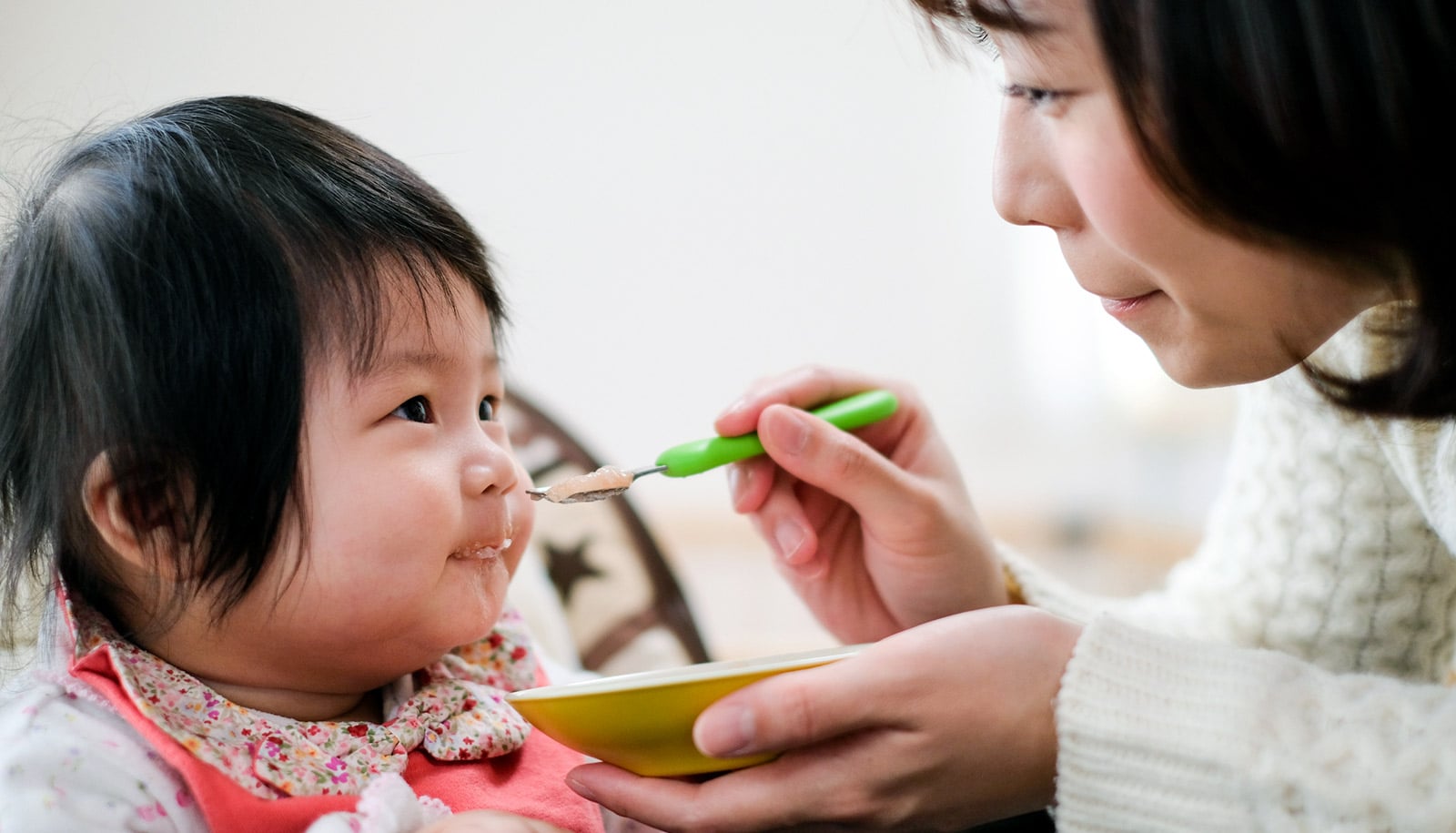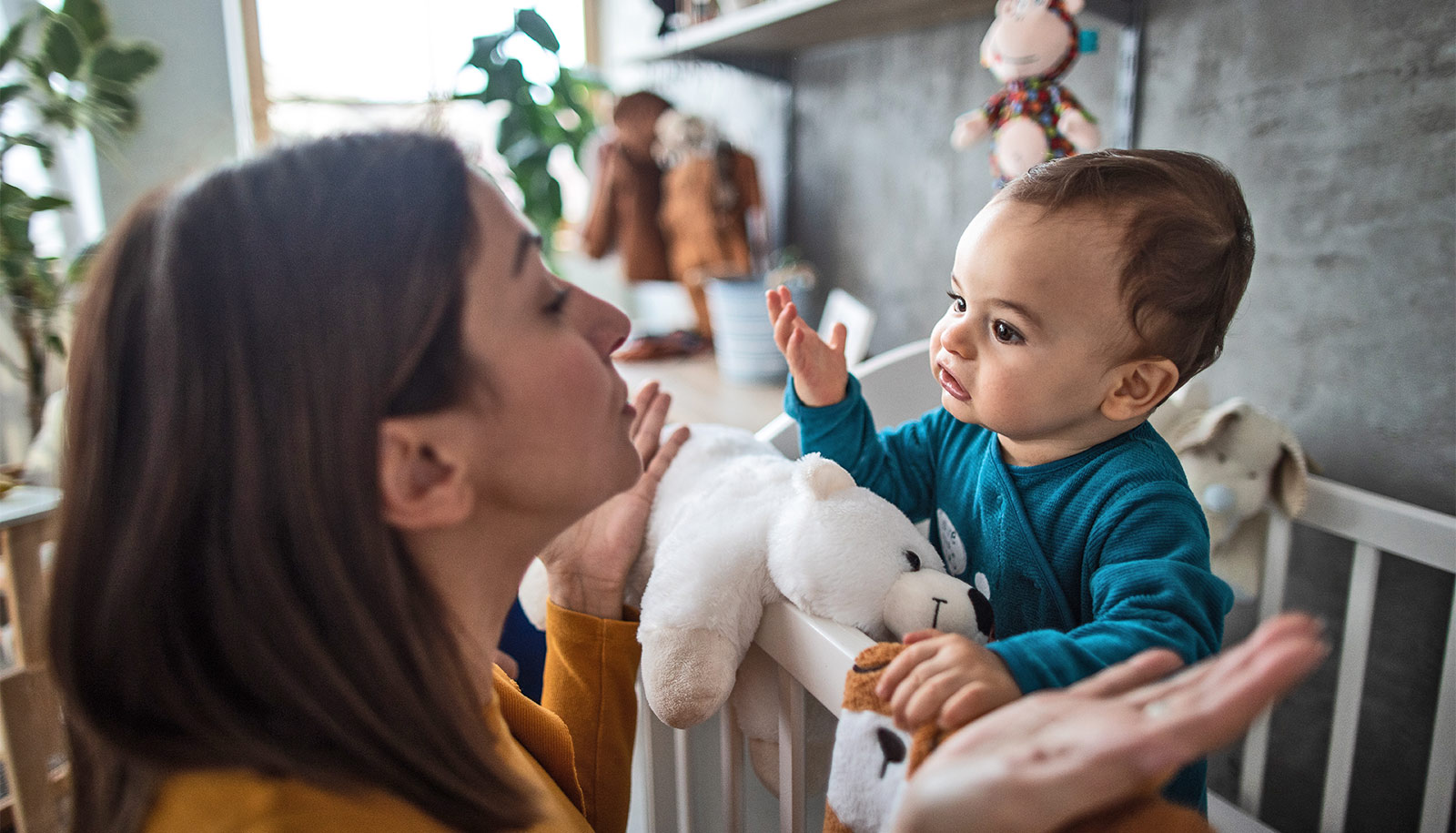
(Credit: Getty Images )
Little ones in 16 countries love hearing baby talk
"Often parents are discouraged from using baby talk by well-meaning friends or even health professionals." This study suggests otherwise.

Babies all over the world love it when adults speak to them in baby talk, research finds.
The finding is from the largest study to date to look at how infants from across the world respond to the different ways adults speak.
The study, which appears in the journal Advances in Methods and Practices in Psychological Science, tested 2,329 babies from 16 countries on their preference for baby talk, the sing-songy, high-pitched way that adults often naturally talk to small children.
“Overall, babies from every site preferred baby talk,” says Michael Frank, professor of human biology in the Stanford University School of Humanities and Sciences.
The researchers found that older babies preferred baby talk more than younger infants, and infants of all ages preferred baby talk when it was uttered in their native language—probably because that’s what they recognize, Frank says.
“Often parents are discouraged from using baby talk by well-meaning friends or even health professionals,” Frank says. “But the evidence suggests that it’s actually a great way to engage with your baby because babies just like it—it tells them, ‘This speech is meant for you!'”
Labs around the world
While it was known from previous research that babies prefer baby talk over adult speech, Frank wanted to know whether this finding would vary across cultures and continents.
“Different cultures around the world baby talk more and less to their kids,” says Frank. “Do babies who hear less baby talk like it less or not at all?”
Often, however, researchers draw universal conclusions from studies at one university with only a few dozen babies. Frank didn’t want to fall into this trap. So, he thought bigger.
“We wanted to get labs together from around the world to test how similar or different babies’ preferences are across different environments,” Frank says.
Through the “ManyBabies” Project—an international research consortium Frank co-founded in 2015—a team of 67 labs in North America, Europe, Australia, and Asia came together. (Collaborations to test babies in Africa and South America are underway). The average age of infants in the study was about 9 months, with some as young as 3 months and as mature as 15 months.
Each lab followed the same experimental parameters, tested the same phenomena, and used the same stimuli, specifically audio clips of other mothers speaking in baby talk to their infants and mothers talking normally to an adult in North American English.
Baby talk at home
Overall, the researchers found that babies preferred clips of mothers talking to their baby. The preference for this childish chit-chat was also stronger when the speech patterns matched an infants’ native language—showing that their prior exposure to baby talk at home mattered, says Frank.
“We think babies’ preferences probably come partly from their experience with baby talk at home, but also partly because more melodic speech just sounds nicer to them,” says Frank.
Support for data collection came from a grant to the Association for Psychological Science from the Laura and John Arnold Foundation.
Individual participating labs further acknowledge funding support from the Natural Sciences and Engineering Research Council of Canada; a Social Sciences and Humanities Research Council of Canada Insight Grant; the UK Economic and Social Research Council; Agence Nationale de la Recherche; a European Research Council Synergy Grant, SOMICS; the Alvin V., Jr. and Nancy C. Baird Professorship; the Korean National Research Fund; the US National Institutes of Health; Leibniz Science Campus Primate Cognition seed funds; The Science Academy, Turkey, Young Scientist Award Program, BAGEP; Research Manitoba, University of Manitoba; and Children’s Hospital Research Institute of Manitoba.
Source: Stanford University
The post Little ones in 16 countries love hearing baby talk appeared first on Futurity.
Share this article:
This article uses material from the Futurity article, and is licenced under a CC BY-SA 4.0 International License. Images, videos and audio are available under their respective licenses.

